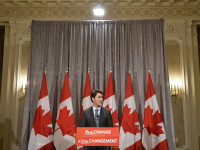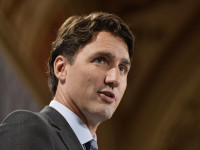Digital policies may not have played a significant role in the just-concluded national election, but the arrival of a majority Liberal government will leave many expecting “real change” on the digital front in the years ahead. My weekly technology law column (Toronto Star version, homepage version) notes that Prime Minister-designate Justin Trudeau is likely to focus on key economic promises from his platform once Parliament resumes. However, there will be several digital issues that should command attention during his first 12 months in office.
Post Tagged with: "trudeau"
Real Change on Digital Policy May Take Time Under New Liberal Government
A Liberal majority government will undoubtedly mean big things for digital policy in Canada. At the start of a new mandate, many will hope that a new party will lead to a significant change on telecom, broadcast, copyright, and privacy. With a majority mandate, there is certainly time to tackle these issues. My guess, however, is that real change will take some time. The Liberal platform did not focus on digital issues and other than the promised reforms to Bill C-51 and much-needed open government and transparency initiatives, most will have to wait.
The real action – and perhaps real change – will take place in 2017. By that time, the U.S. election will have concluded and the future of the Trans Pacific Partnership will be much clearer. Canada will surely start studying the TPP once it is finally released, but any steps toward ratification would likely depend on the U.S. position on the agreement. With Hillary Clinton currently opposed to the deal, its ratification is far from certain.
Why the Liberal Party Defence of Its Support for Bill C-51 Falls Flat
Bill C-51, the anti-terrorism bill, became law yesterday as it received royal assent. As polls continue to suggest that the Liberal support for the bill is shifting potential voters to the NDP, Liberal leader Justin Trudeau has conducted several interviews defending his position as the “right move for Canadians.” Trudeau’s arguments, which have been echoed by other Liberal MPs such as Marc Garneau, boils down to three key claims: he doesn’t want to play politics with security, there are elements in Bill C-51 he likes including greater information sharing, and he will fix the problems with the bill if elected.
For those Canadians looking for an alternative to the Conservative position on Bill C-51, Trudeau’s defence falls flat.
Justin Trudeau on Moore’s Radical Extremist Comment
Liberal MP Justin Trudeau responds to Canadian Heritage Minister James Moore on Twitter: "Wow. Apparently I might be a "radical extremist" because I have questions about a gvt bill. I thought that was called 'doing my job.'"









